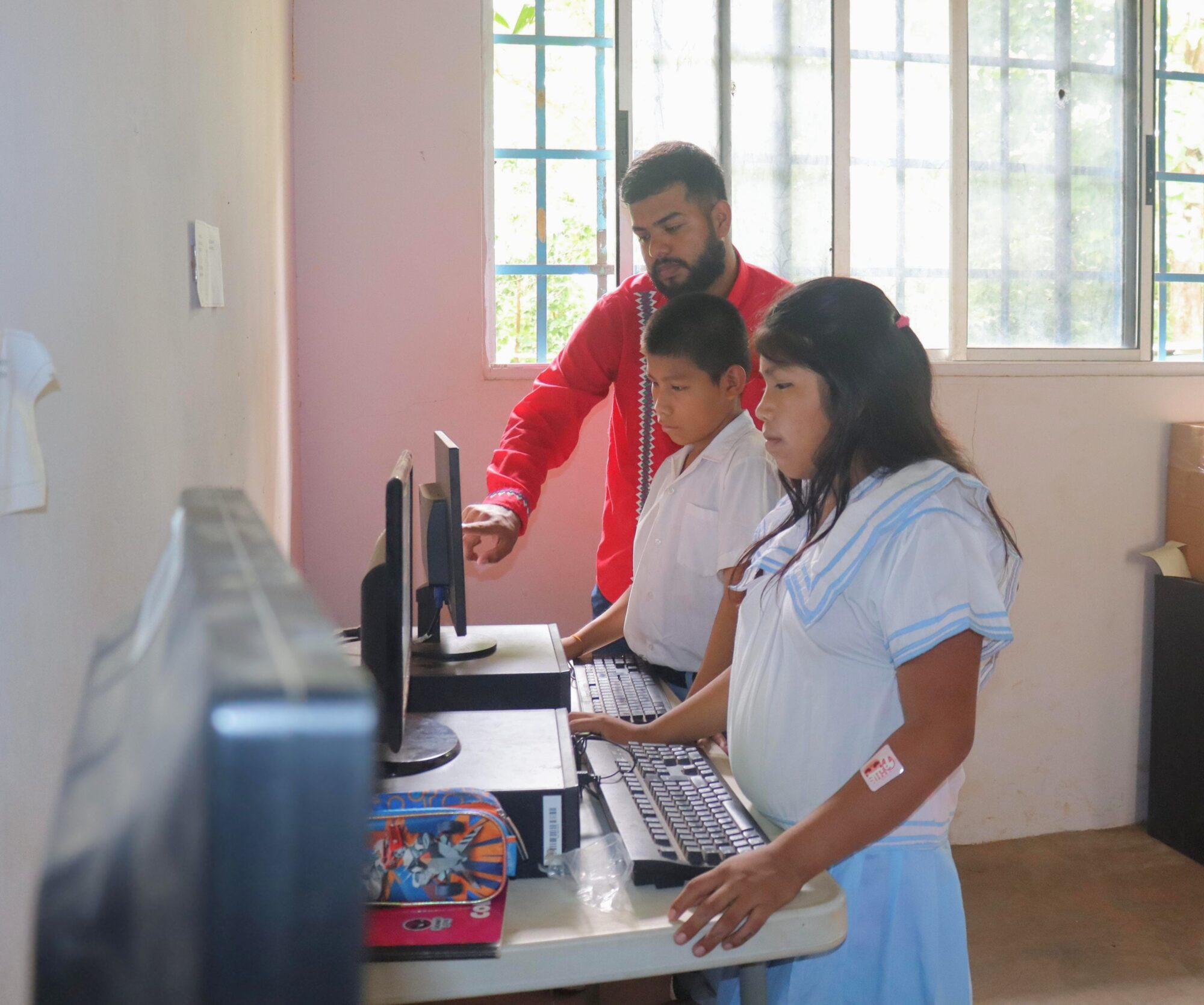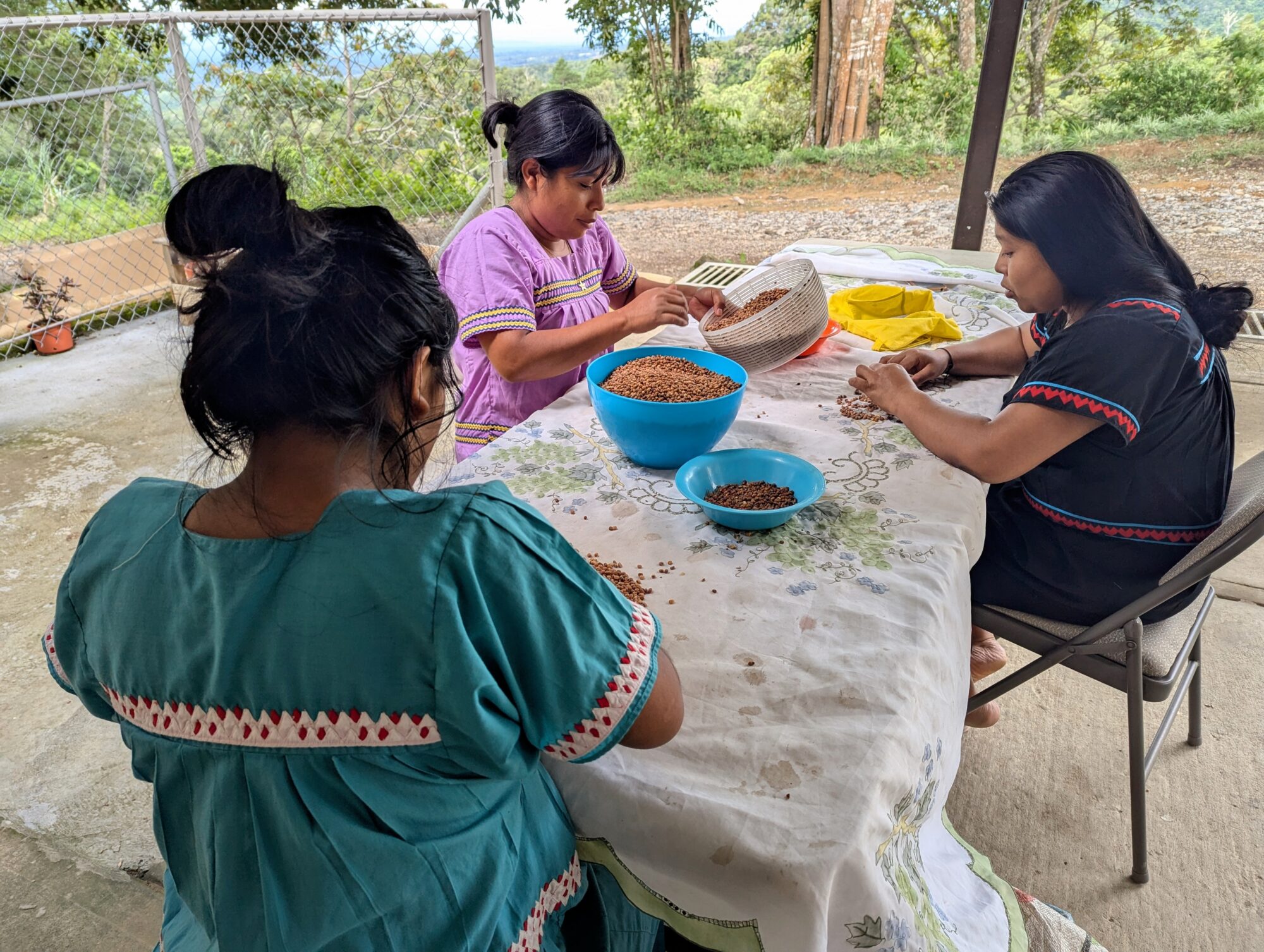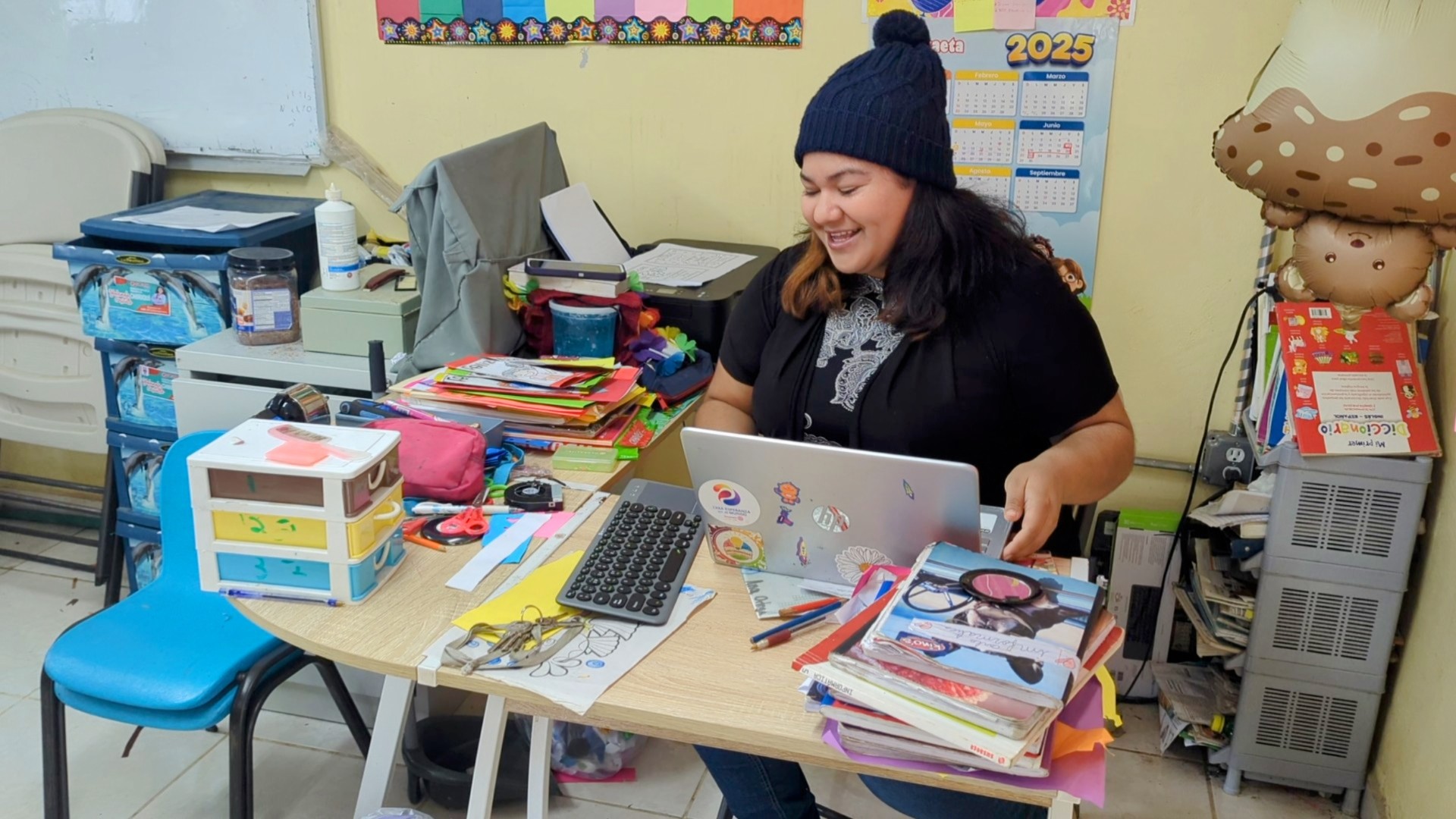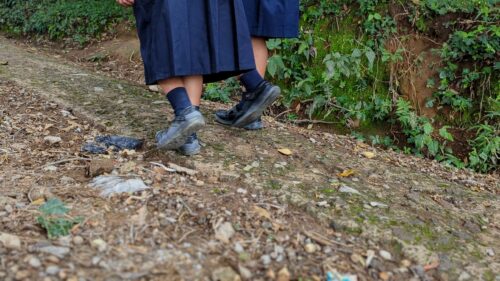Making a difference in indigenous communities
At 23 years old, Ana gets ready every morning, full of motivation to welcome her students to the computer lab. The morning mist that clings to the coffee plantations endlessly across the hillsides bears witness to the route that the children walk every day to get to El Faro school, in the community of Cañas Verdes. Fresh out of teacher training, Ana, inspired by her mother, who is also a teacher, serves as a computer science teacher for Ngöbe-Buglé children, who follow their families during the harvest season.
Four hours away, in the heart of the Ngöbe-Buglé comarca (an administrative zone), one of Panama’s six ancestral lands, 23-year-old Jhonatan was already at his desk at the school where he teaches in Soloy, the capital of the Besikó district. This indigenous territory, which spans provinces, was created in the late 90s following decades of advocacy by the Ngabe and Buglé peoples to preserve their land, culture and beliefs. Despite his youth, he has become a pillar of stability for his community. While the pandemic, protests and social mobilisations closed schools throughout Panama for almost 500 days in the past five years, Jhonatan chose to keep going, determined that his students would not lose a single day of learning.
“I must do more than meet academic goals. I must also ignite a genuine interest in learning among children”
“Another morning, another opportunity,” Jhonatan tells himself as he prepares materials for his classroom. In his short experience, he has learned to be resourceful: when textbooks are scarce, he creates lessons based on the oral stories of the elders. When they are unable to do their homework due to a lack of guidance at home, he takes the time to ensure that his students receive extra support at school to complete their assignments. His students, who range in age from 6 to 16, see him not only as a teacher, but as living proof that education can lift them out of the cycle of poverty that has trapped their families for generations.
Meanwhile, Ana is discovering the unique challenges of El Faro’s multi-grade school. Her students arrived each morning after walking several kilometres through mountainous terrain, sometimes wet from the rain, but happy to find a place to learn in the classroom. The disconnection from their ancestral territory has meant that many do not speak Ngäbere (their ancestral language) as their mother tongue. Ana has tried to learn it and teach them, collecting words and phrases that help bridge the gap between cultures.
“Teacher Ana,” called Jorge, an 8-year-old boy with bright eyes and a toothless smile, “my family says we might be going back to the comarca next week.”
Ana’s heart sank. She had seen this pattern before — families following job opportunities, with their children’s education interrupted again and again. But she had an idea. That afternoon, she spoke with Jorge’s parents to make sure he would finish the quarter and that his transition to the Ngöbe-Buglé comarca would allow him to re-enrol in another school.

Jhonatan faces different obstacles, but they are just as challenging. When dropout rates rose in his community, he didn’t see mere statistics. He saw 14-year-old Marisol, whose dreams of becoming a nurse were threatened by premature motherhood. Instead of watching her disappear from his classroom, Jhonatan leads the Ngöbe-Buglé Youth Forum, a space for community leaders seeking to empower young people through dialogues addressing human rights, mental health, public policy, and civic participation. Marisol is not the only one. Twelve-year-old Alberto ran away from home to take on informal jobs and is now at social risk due to friends who have influenced him to commit crimes. For Jhonatan, leading the forum provides a supportive space that, through rights literacy and advocacy, prevents cases like these from continuing.
“Education is not just about reading and writing,” Jhonatan tells his students. “It’s about keeping our voices alive, remembering our stories, and making our future possible.”
Both teachers understand that their work goes far beyond the classroom walls. Ana lends her car in the afternoons to take some of her students home, and she also families in temporary housing near the coffee plantations, explaining to parents — many of whom cannot read — why their children’s education is important. She learned that some parents, exhausted from long workdays, saw school as a privilege they couldn’t afford. With patience and persistence, she helped them understand that education wasn’t a privilege, but a ladder their children could climb.
Both schools provide uniforms and materials, understanding that education in rural contexts requires extra efforts.
“Ana uses her car in the afternoons to take some of her students home”
Jhonatan also works to transform his community’s relationship with education. When traditional practices conflict with schooling, he does not reject them. Instead, he integrates them into his lessons, showing how Ngöbe-Buglé ancestral knowledge about agriculture, medicine, and governance can complement modern learning. In his classroom, he welcomes young people who have not completed primary school to help them finish effectively and develop their own reading and writing skills.
Rain-soaked muddy roads characterise the roads to both schools. The teachers recognise that rural educational challenges extend far beyond classroom instruction: the transition from primary to secondary school represents a critical moment when students’ aspirations often collide with harsh external realities. Twelve-year-old Luis studies by the flickering light of oil lamps each evening, yet his face brightens when he shares his vision: new whiteboards and chairs that could transform his beloved classroom into an inspiring learning space.
“Teaching in a Ngöbe community is profoundly challenging,” Jhonatan explains. “As an educator, I must do more than meet academic goals. I must also ignite a genuine interest in learning among children who often arrive burdened by the frustrations of resource limitations at home.” Ana faces similar challenges and has found that incorporating faith-based education improves student retention. Every morning, she starts her classes with prayers of gratitude. In her words, “inspiring, reinforcing the commitment with their community and conveying a desire to succeed with the help of God and their families”, is key to cultivating an environment of opportunity.

By the second quarter of this school year, both teachers are seeing the fruits of their labour. In El Faro, children who were previously silent due to learning difficulties have shown progress by integrating technology into their lessons. In Soloy, students who might have dropped out of school due to work or teenage pregnancy have the opportunity to build dreams in the classroom, guided by their teacher.
The two teachers have never met, but their work impacts the same population facing different vulnerabilities. Children who attended El Faro during the harvest can return to their comarca, even to Soloy, with new skills and perspectives. Stories of innovation and hope travels between communities through families and community networks.
Their impact goes beyond test scores or graduation rates. In a country where nearly 500 school days have been lost due to various crises, these young educators represent something valuable: the unshakable belief that every child deserves an opportunity to learn, dream, and build a better future. Like Luis, who wants to be a scientist, and Yarisbeth, inspired by Ana to follow in her footsteps as a teacher in the community.
As Jhonatan and Ana continue their work, they carry with them the knowledge that behind every lost school day there is a story at risk of being silenced. But in their classrooms, surrounded by the laughter and curiosity of the Ngöbe-Buglé children, those stories find an echo. They have learned that classrooms are truly the place where identity takes root and futures begin.

